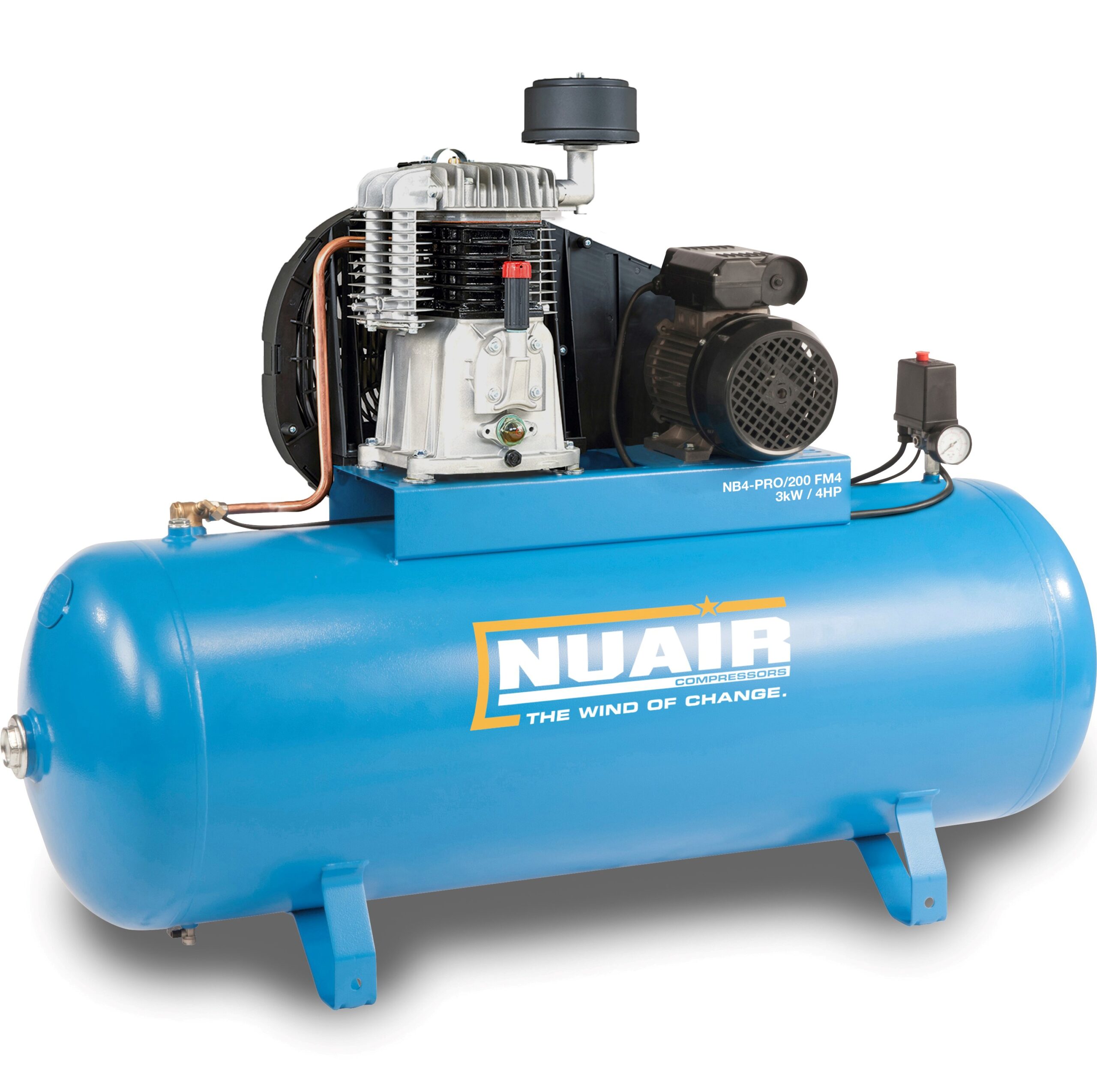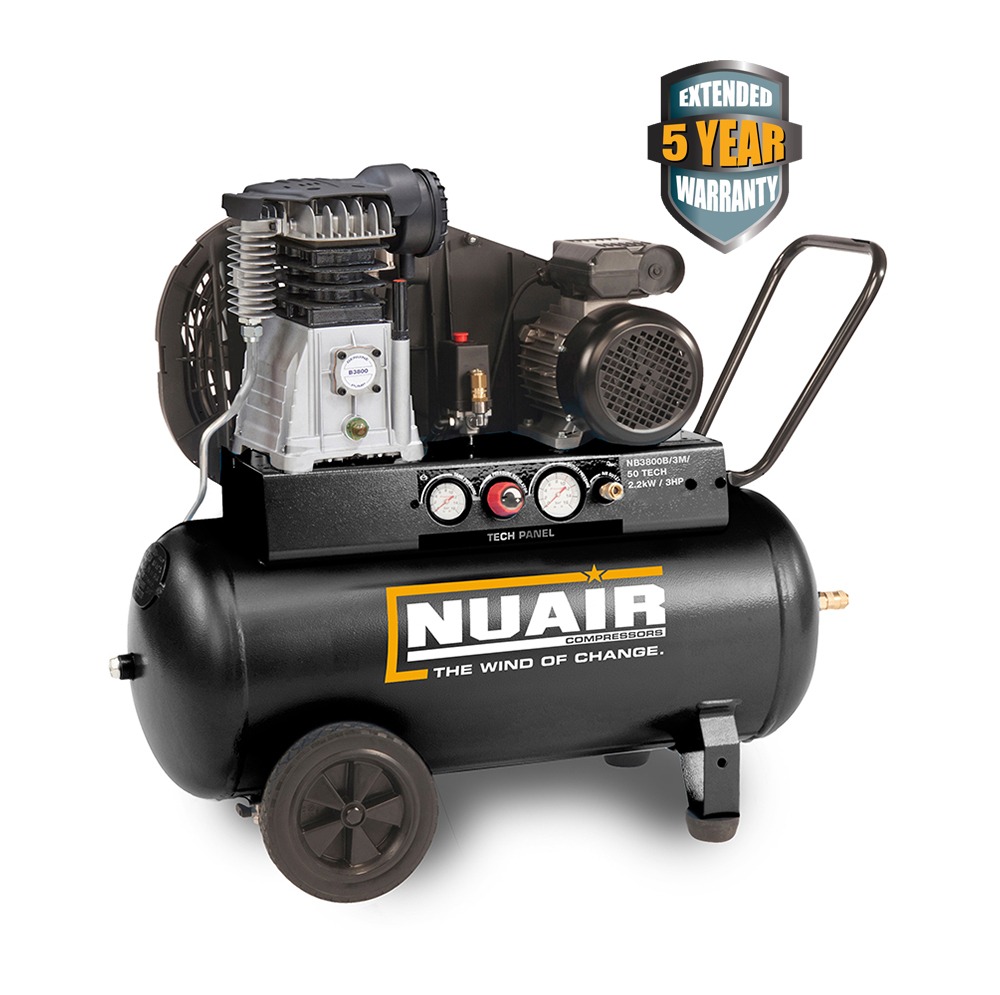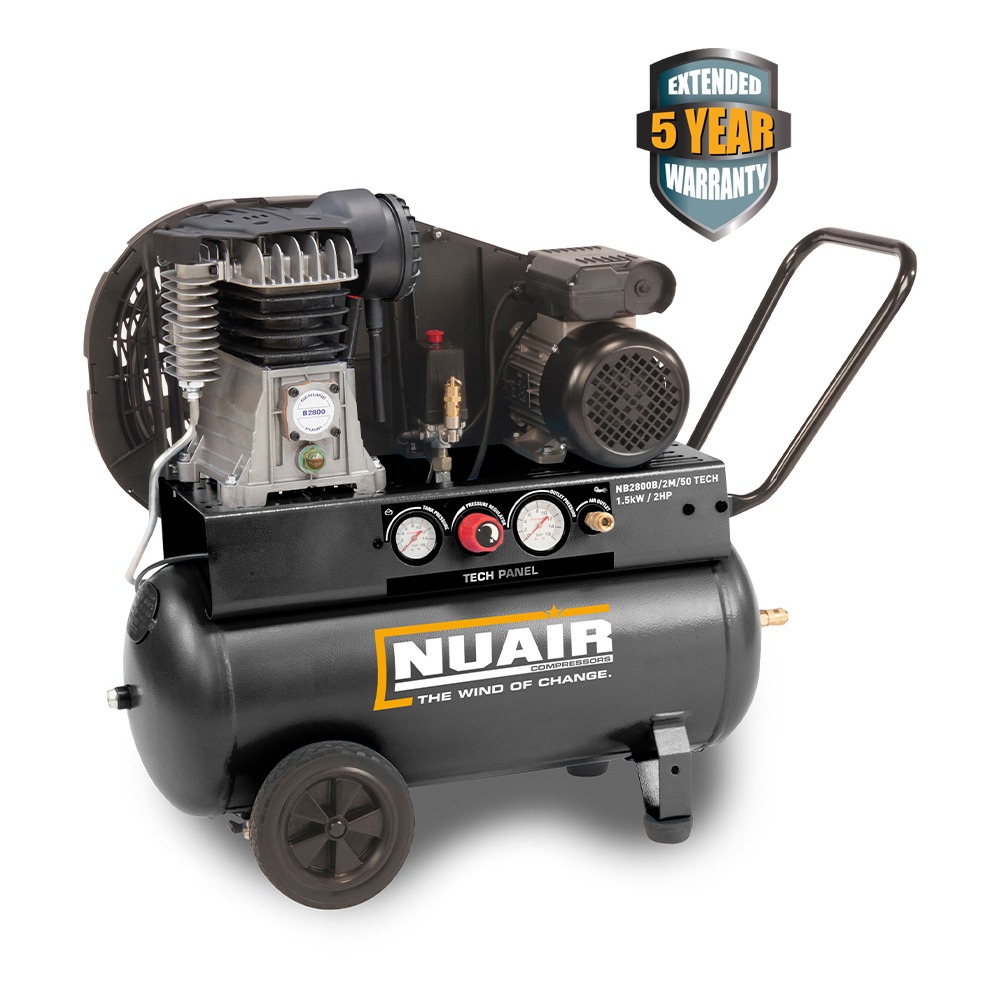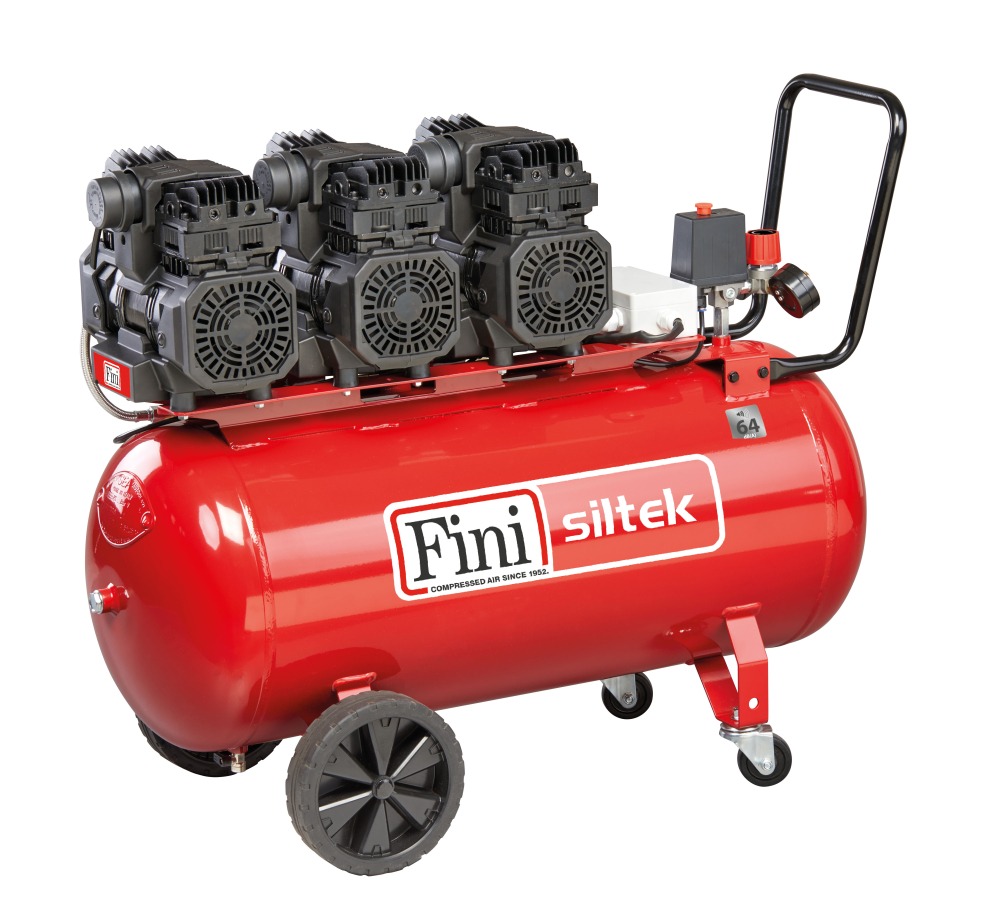Did you know that choosing the wrong air compressor can increase your energy costs by up to 30% and lead to costly downtime?
“Air compressors are the backbone of countless industries, yet selecting the right one can make or break your operational efficiency.” – Compressed Air Systems UK Expert
Key Areas We Will Cover
- Overview of air compressor types and their applications
- Key factors for choosing the right compressor in the UK
- Sizing and capacity considerations for optimal performance
- Energy efficiency and cost-saving technologies
- Maintenance tips to extend compressor lifespan
- Industry-specific requirements and regulations
- Top brands and models available in the UK
- Frequently asked questions about air compressors
Air compressors are essential for industries, workshops, and DIY enthusiasts across the UK, powering tools, manufacturing processes, and more. However, selecting the right compressor involves understanding types, specifications, and application needs. This comprehensive guide, crafted by Compressed Air Systems UK, explores everything you need to know to choose, use, and maintain air compressors for maximum efficiency and reliability.
Types of Air Compressors and Their Applications
Air compressors vary in design and function, each suited to specific tasks.
Piston (Reciprocating) Compressors
- How They Work: Use pistons to compress air, ideal for intermittent use.
- Applications: DIY projects, small workshops, tyre inflation, and nail guns.
- Pros: Affordable, portable, and suitable for high-pressure tasks.
- Cons: Noisy and less suited for continuous operation.
Rotary Screw Compressors
- How They Work: Twin screws compress air continuously, designed for heavy-duty use.
- Applications: Manufacturing, automotive, and industrial processes.
- Pros: Quiet, energy-efficient, and reliable for 24/7 operation.
- Cons: Higher upfront cost but better long-term value.
Centrifugal Compressors
- How They Work: Use rotating impellers for high-volume air delivery.
- Applications: Large-scale industries like petrochemicals and power plants.
- Pros: High output and efficiency for large systems.
- Cons: Expensive and complex, not suited for smaller operations.
Oil-Free vs. Oil-Lubricated Compressors
- Oil-Free: Ideal for food, pharmaceutical, and electronics industries requiring Class 0 air purity (ISO 8573-1).
- Oil-Lubricated: Durable for general industrial use but requires filtration to prevent contamination.
Tandem and Basemount Compressors
- Tandem: Dual-pump systems for high output, like Tanair’s TAN3BD-270/3T with 30cfm capacity.
- Basemount: Compact, stationary units for workshops with limited space.
Choosing the Right Air Compressor in the UK
Selecting a compressor involves matching specifications to your needs.
Key Factors to Consider
- Power Source: Electric (230V/110V), petrol, or diesel. Electric suits indoor use; petrol/diesel for remote sites.
- Tank Size: From 6L for DIY tasks to 270L for industrial needs. Multiply tool SCFM by 6 for minimum tank size.
- Pressure (Bar/PSI): Most tools require 6-8 bar (90-120 PSI). Check tool specifications.
- Flow Rate (CFM): Ensure compressor output matches tool requirements (e.g., 8 SCFM for an impact wrench).
- Portability: Portable for site work or stationary for workshops.
- Noise Levels: Silent models (e.g., Hyundai 8L at 60 dB) for noise-sensitive environments.
UK-Specific Considerations
- Regulations: Comply with BS EN 12021 for breathing air and ISO 8573-1 for purity.
- Climate: High UK humidity requires effective dryers to prevent moisture damage.
- Energy Costs: With rising prices, prioritise energy-efficient models like VSD compressors.
Sizing and Capacity Considerations
Correct sizing prevents underperformance or wasted energy.
How to Size Your Compressor
- List Tool Requirements: Check CFM (Cubic Feet per Minute) in tool manuals.
- Calculate Total Demand: Add 20% to account for simultaneous use or future expansion.
- Match Tank Size: Larger tanks (e.g., 50L-270L) suit continuous tasks; smaller (6L-24L) for intermittent use.
- Consider Duty Cycle: Piston compressors have 50% duty cycles; rotary screws run continuously.
For example, a 24L compressor suits DIY tasks like nailing, while a 100L+ unit is better for spray painting or industrial tools.
Now only
£883.00 Original price was: £883.00.£838.85Current price is: £838.85. exc vat.
Now only
£2,316.81 Original price was: £2,316.81.£2,200.97Current price is: £2,200.97. exc vat.
Now only
£3,925.00 Original price was: £3,925.00.£3,728.66Current price is: £3,728.66. exc vat.
Now only
£9,954.00 Original price was: £9,954.00.£8,330.00Current price is: £8,330.00. exc vat.
Now only
£21,056.00 Original price was: £21,056.00.£12,634.00Current price is: £12,634.00. exc vat.
Now only
£2,410.27 Original price was: £2,410.27.£2,289.76Current price is: £2,289.76. exc vat.
Energy Efficiency and Cost-Saving Technologies
Energy-efficient compressors reduce costs and environmental impact.
Key Technologies
- Variable Speed Drives (VSDs): Adjust motor speed to demand, saving 10-20% on energy.
- Heat Recovery Systems: Reuse 70-94% of waste heat for heating or hot water.
- Energy-Efficient Motors: Permanent Magnet motors offer superior efficiency over traditional models.
- Smart Controllers: Optimise output and reduce idle time.
A UK manufacturing plant saved £15,000 annually by installing VSD compressors after an audit.
Tips for Efficiency
- Conduct regular air audits to identify leaks (up to 40% air loss).
- Use modular piping (e.g., AIRnet) to minimise pressure drops.
- Opt for low-maintenance oil-free compressors for sensitive applications.
Maintenance Tips for Longevity
Proper maintenance extends compressor life and ensures reliability.
Essential Maintenance Practices
- Daily: Check oil levels (for lubricated models) and drain receiver tanks to remove moisture.
- Weekly: Inspect hoses, fittings, and belts for wear.
- Quarterly: Replace filters and test air quality per ISO 8573-1 standards.
- Annually: Service by certified engineers, checking valves, motors, and lubricants.
Common Issues to Watch
- Leaks: Use ultrasonic detectors for early identification.
- Overheating: Ensure proper ventilation and clean coolers regularly.
- Pressure Drops: Inspect piping and fittings for blockages.
Regular maintenance can reduce downtime by 25% and extend equipment life by years.
Industry-Specific Requirements and Regulations
Different sectors have unique needs and standards.
Food and Beverage
- Requires Class 0 or 1 air to prevent contamination (ISO 8573-1).
- Follow BCAS Food Grade Compressed Air Code of Practice.
Pharmaceuticals and Healthcare
- Class 0 air for sterility; regular testing for bacteria and oil.
- Compliance with MHRA and BS EN 12021 for breathing air.
Automotive and Manufacturing
- Instrument air (Class 2-3) for tools and paint spraying.
- Focus on energy efficiency to reduce high operational costs.
Construction and Mobile Use
- Petrol/diesel compressors for site flexibility.
- Ensure robust fittings to withstand harsh conditions.
Top Air Compressor Brands and Models in the UK
The UK market offers diverse options from trusted brands.
Recommended Brands
- Tanair (Compressed Air Systems UK): Known for durable petrol, diesel, and electric models with features like dampener systems for reduced vibration.
- Power Systems: Affordable, low-noise oil-free compressors (e.g., HY7524, 24L, 5.2cfm).
- Fini: Reliable for DIY with long warranties
- NuAir: Part of the FINI-NUAIR group, offering high-quality piston and screw models.
Top Models for 2025
- Nuair NB4/200 FM4 (230 Volt)┃18 CFM 11 Bar Air Compressor on a 200 Litre Receiver
- Fini MINI CUBE 2.2-08-90 400 Volt | 10.3 CFM 8 Bar Plug & Play Air Compressor with 90 Litre Air Receiver
- Nuair NB3800B/3M/50 Q TECH PRO UK (230 Volt) (13 Amp) | 13.06 CFM Piston Air Compressor
In summary, selecting the right air compressor in the UK requires understanding your application, sizing needs, and efficiency goals. From piston models for DIY to rotary screw compressors for industry, the right choice enhances productivity and reduces costs. With proper maintenance and energy-saving technologies, you can ensure long-term performance and compliance with UK standards.
Ready to Find Your Perfect Air Compressor?
Contact Compressed Air Systems UK at 0121 753 3330 or visit Unit 15, Fortnum Close, Birmingham, B33 0LG, for expert advice and tailored solutions. Explore our range of Tanair compressors and get a free consultation today!
Frequently Asked Questions About Air Compressors
Got questions about choosing or maintaining an air compressor? Our FAQ section addresses common queries to guide your decision.
For DIY tasks like tyre inflation or nailing, a 6-24L compressor with 4-8cfm is sufficient. Larger tasks like spray painting require 50L+.
Oil-free models are ideal for clean air applications (e.g., food or electronics) but may have shorter lifespans. Oil-lubricated compressors are durable but need filtration.
Use VSDs, fix leaks, and conduct annual audits to optimise efficiency.
Direct-drive models are compact and low-maintenance, ideal for light use. Belt-drive compressors are quieter and suited for heavy, continuous tasks.
Service annually by certified engineers and perform daily/weekly checks for oil, moisture, and wear.
-
 Sale!Add to basket
Sale!Add to basket£5,944.00Original price was: £5,944.00.£5,646.80Current price is: £5,646.80. exc vat. -
 Sale!Add to basket
Sale!Add to basket£11,400.00Original price was: £11,400.00.£6,840.00Current price is: £6,840.00. exc vat. -
 Sale!Add to basket
Sale!Add to basket£7,522.00Original price was: £7,522.00.£7,145.00Current price is: £7,145.00. exc vat. -
 Sale!Add to basket
Sale!Add to basket£8,565.00Original price was: £8,565.00.£7,817.26Current price is: £7,817.26. exc vat. -
 Sale!Add to basket
Sale!Add to basket£4,532.00Original price was: £4,532.00.£4,305.40Current price is: £4,305.40. exc vat. -
 Sale!Add to basket
Sale!Add to basket£9,209.00Original price was: £9,209.00.£5,526.00Current price is: £5,526.00. exc vat. -
 Sale!
Sale!Power Systems NOBEL 7.510 DF (LGN) | 37 CFM 10 Bar Floor Mounted Air Compressor with Dryer & Filters
Add to basket£5,429.00Original price was: £5,429.00.£5,157.55Current price is: £5,157.55. exc vat.
Explore More of Our Articles
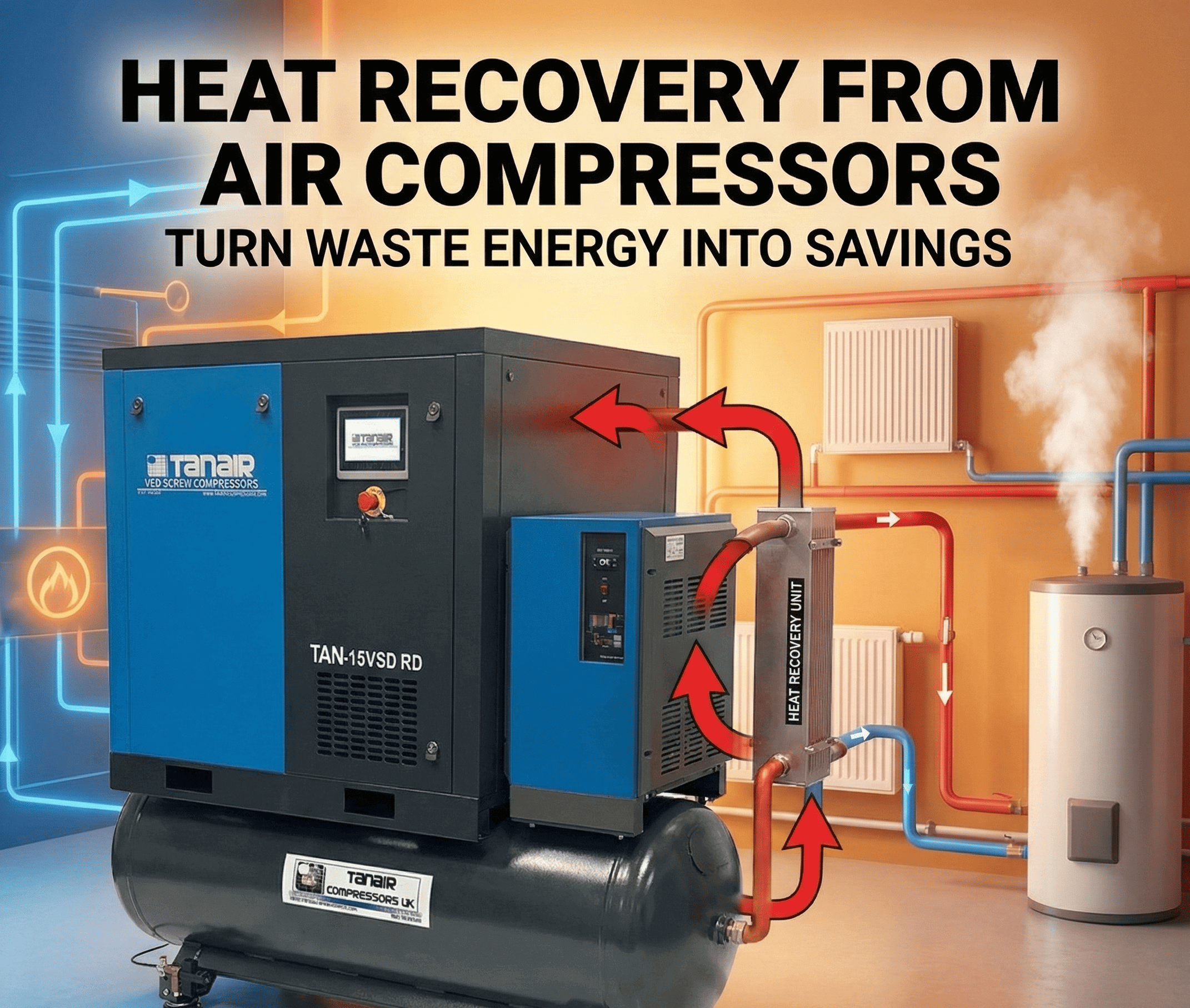
Heat Recovery from Air Compressors: Turn Waste Energy into Savings for UK Workshops 2026
What if up to 94% of the energy used by your air compressor is converted into heat, much of which is simply wasted, potentially costing

The Ultimate Guide to Air Line Fittings: Types, Uses, and Maintenance for UK Workshops
Did you know that poor quality air line fittings can cause up to 30% energy loss in compressed air systems, costing UK workshops thousands in
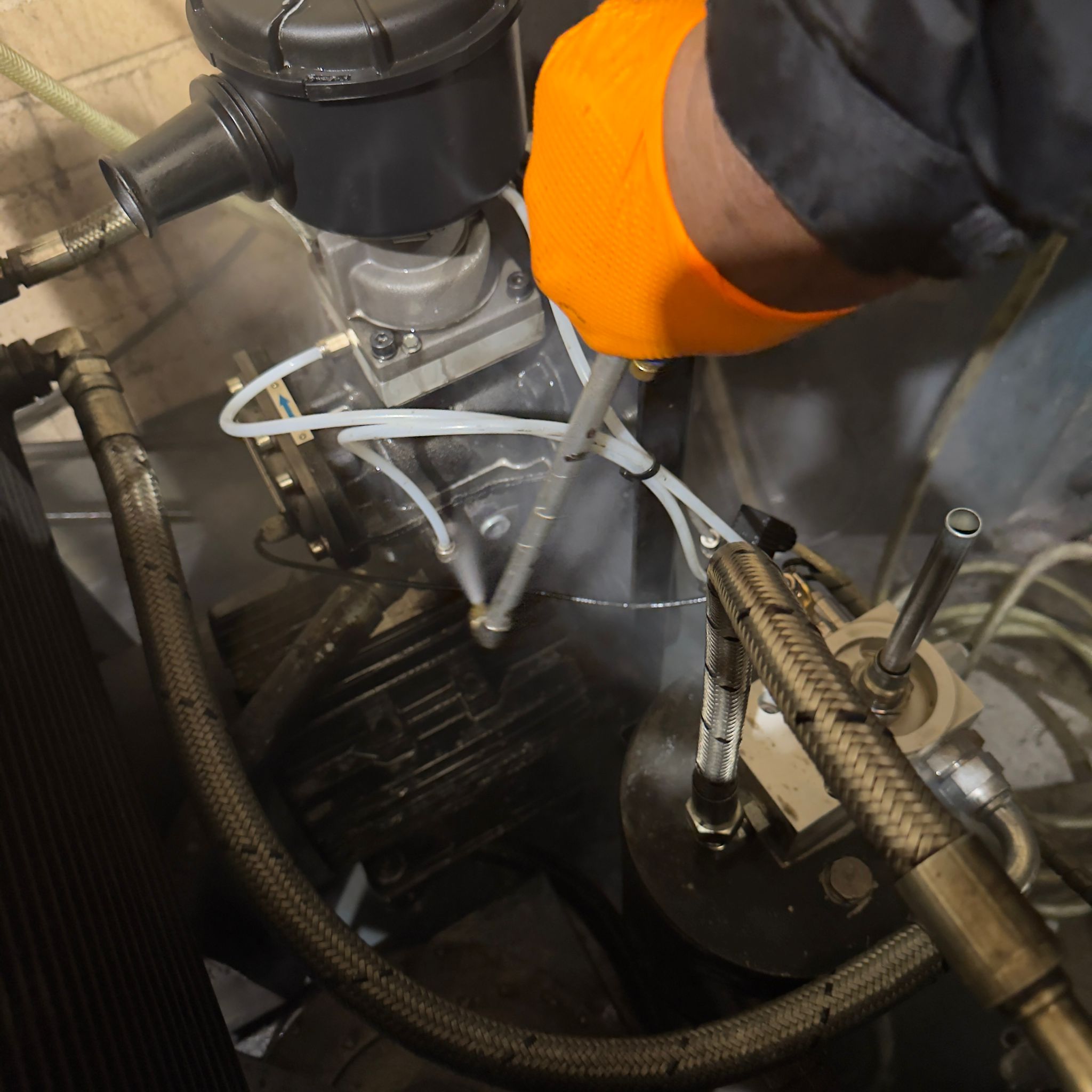
The Benefits of Deep Cleaning Your Compressed Air System
Did you know that accumulated contaminants in compressed air systems can cause up to 30% energy waste, adding thousands to annual electricity costs for UK

Wall-Mounted Air Compressors: The Ultimate Space-Saving Guide for UK Garages in 2025/26
Did you know that the average UK garage loses up to 2 square metres of valuable floor space to a traditional air compressor – enough

Air Compressor Kits vs Standalone Tools: Which Setup Saves You Time and Money in the UK?
Did you know that over 70% of UK DIY enthusiasts end up spending an extra £150 or more piecing together mismatched air tools that fail

The True Cost of Compressor Downtime in Tamworth’s Industrial Sector
Did you know that a single hour of compressor downtime in a mid-sized manufacturing plant can cost up to £10,000 in lost production alone? In


